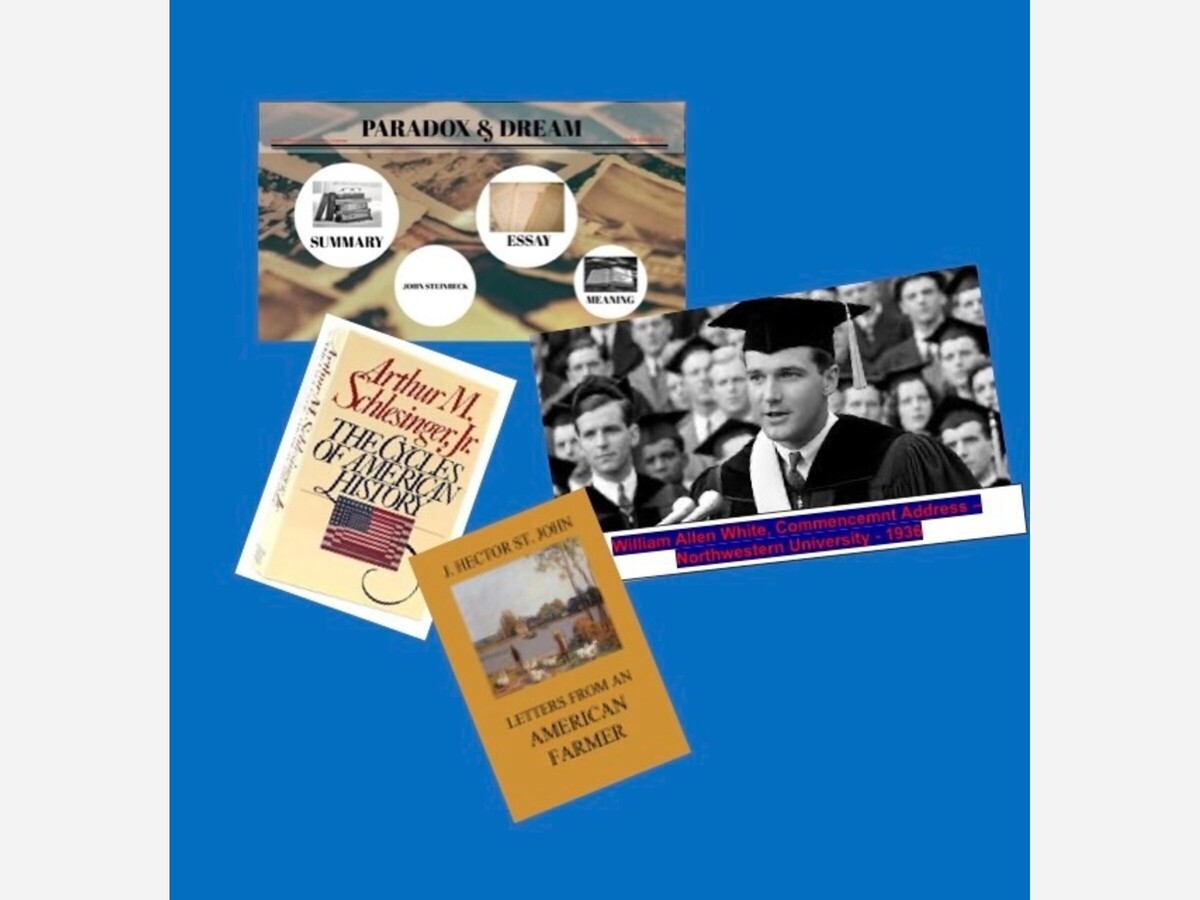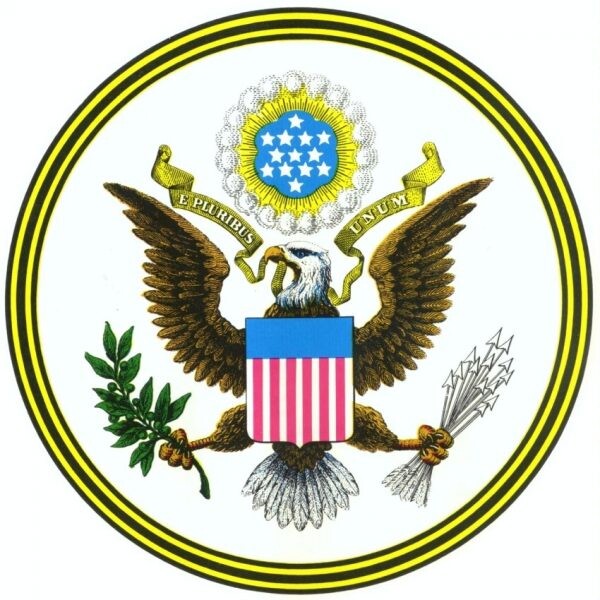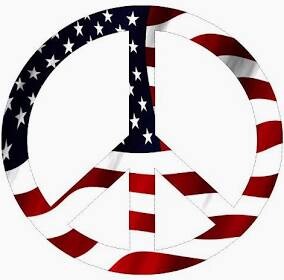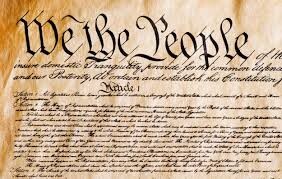Image


Closing in on a quarter-century ago, the students in my Honors American Literature class were given an assignment to compare four distinct articles, each of which tried to identify the most important elements of the American Way of Life. I tripped upon this memory because of a social media exchange I had. The topic stumbled upon things to be proud of about our country. In the course of the discussion, I started wondering if people were even able to agree on the best traits of Americans.
I have some concern that we are no longer coveting any set of traits as exemplary. That is, I am not sure Americans would be able to find agreement on which principles or pillars are proudly American, and inherently part of the national consciousness. Moreover, even if we can identify some patterns, I suspect we would disagree on which items were most valuable.
Do we know anymore what sets us apart? What is an American? Where do pride in our heritage and faith in our future come from?

In the central article of my class assignment, Crevecoeur’s (Letters From An American Farmer), the visiting author emphasized freedom, independence, and autonomy. In short, the author says our Constitution and our mind set puts the individual first. My students often focused on the Bill of Rights, and our collective belief in the American Experiment. That experiment hypothesized that The People could be the source of their own government, and therefore the arbiter of their own limits and restrictions.
What makes America great, my students surmised, was preeminence of personal liberties. Every ‘rags-to-riches’ story suggests that anyone can commandeer his/her own success. Crevecoeur would say that “the rewards of his industry will follow, with equal steps, the progress of his labor.” In direct terms, those who work harder and smarter may also enjoy the most success. Of course, this wasn’t exactly true, even then, but the capacity for merit-based success is certainly real – then and now.
An accurate, but perhaps unexpected, consequence of this “individual first” is the Wild West mentality which appears in both an essay by John Steinbeck (Paradox and Dream) as well as another by Arthur Schlesinger, Jr. (What, Then, is the American, This New Man?).
Each of these esteemed authors notes that breaking the law, if one can get away with it, is just another way of making sure the government doesn’t restrain the individual. In other words, there is some pride in circumventing the rules. Just a quick thought of the ‘sport’ of limiting one’s tax liability should reinforce the truth that this attribute is alive and well in 21st century America.
This may seem paradoxical, of course, in that Americans believe that no one is above the law, while at the same time applauding individuals who find a way to ‘stick it’ to the government. In the case of taxes, "We, The People" casually transform into ‘them.’

By contrast, Willliam Allen White’s Commencement Address at Northwestern in 1936 [sic.] (Commencement) is more indirect in its references to this tolerance of the loopholes of the law. Instead, White tries to extend some confidence that the enduring elements of American individualism and integrity will be perpetually rediscovered by successive generations.
White’s essay, it seems to me, allows for a renewal of commitment to truth, justice, and the American Way by each generation. To be precise, White says, “I am satisfied that the disease [populism] has its root in a lack of social faith. The thing that has bound America into one nation is tolerance - tolerance and patience; indeed, tolerance and patience upheld by a sense of duty.” White here gives scant attention to the rebelliousness of individuals. Instead, he affirms that we Americans will coalesce around the ideals that founded the country.
All of this is to say that somewhere in the four articles, (and plenty more like them) my former students could find reliable and consistent reasons for hope. Yes, there were instances of paradox and hypocrisy, and self-delusion in those founding beliefs, but there was also pride and confidence, and they are critically important as well.
If you wish to be worried about the lifespan of our American optimism, perhaps the place to start is White’s commencement address. It is eerie to read of White’s concerns between the World Wars, as the country seemed poised to accept the rise of populism, dictatorship, and Fascism. Nevertheless, White remained certain that American integrity was so intricately knit that it would withstand the temptation to settle. He thought our cultural and traditional belief in virtues like mutual respect and universal consideration would persevere.
So, I will ask you with all sincerity: do we still believe in the absolute sovereignty of the individual, even those who think differently than we do? Do we continue to draw our collective power from mutual understanding and mutual respect? While it has become understandably easy to question the integrity of our leaders, sometimes, do we truly retain a sense of assurance that what sets us apart is a couple of centuries of honor?

The Hippies of the 1960s and the Beatniks of the previous decade, identified the Establishment as the enemy of Freedom. While they may have been right at the time in some regards, that same establishment, as Steinbeck then suggested in real time, was also a force for stability. As pervasive and suffocating as the status quo may have been, it also buffered us through anti-war demonstrations, and social crises, and escorted us to the Moon.
The Counter Culture had Vietnam and Watergate and the Hostage Crisis; but systems put in place in the 1700s were able to withstand these pressures. The brunt of the 80s, and through to the early aughts saw American life largely prosper and thrive. There were blemishes for sure, but Iraq and Afghanistan were not comparable to Vietnam. The recession of 2008 was weathered easily as well as the crisis of the Carter years.
Today, the attacks on our institutions have been more pronounced and more effective. Since 2016, the electorate has become more universally persuaded to mistrust and distrust our institutions. The battles that have been launched have deliberately assaulted the integrity of Congress, of the Supreme Court, of the Judicial system, the FBI, CIA, Homeland Security. People have been relentlessly told to suspect the reliability of our elections, our military leaders, our media. The difference between then and now is not just that the propaganda campaign is working, but that populism on both sides of the aisle is the more powerful voice. White’s essay, and the other three authors as well, would likely find it surprising the We, the People seem not to trust We, the People.
We used to say things like this: “While I strongly disagree with everything you’re saying, I will defend to the death your right to say it.” We do not hear such rhetoric these days. Instead, we tend to agree with only those platforms that agree with ours.
Lest it sound as if I am favoring one viewpoint over another, I will reject the contention that any of these observations is rooted in preferences. Instead, simply read any of the four articles --- or better yet, all of them. These trends and tendencies are not new, and they are certainly not peculiar to our contemporary struggles for identity. Crevecoeur’s Letters were composed in the 18th century, while the other three come from the full scope of the 20th century.

I don’t think We, the People know who “We” are anymore. It’s not an identity crisis, so much as it’s an incapacitation. We spend so much time being afraid of things that we remain perpetually stressed. We may be subjects of a decades-long engagement with cowardice. In one way or another, we have become serfs to Paper Tigers, because our confidence has been eroded.
It's possible to love your country and still recognize and lament its shortcomings. Our current dilemma, I believe, is that we are so mesmerized by the messaging that we no longer live in a melting pot, a flavorful salad, or even some brand of long-simmering stew. Each faction is firmly convinced that 50% of his compatriots are evil, traitorous, or subversive of any and all manifestations of American greatness.
This is all so sad, and so at odds with the country I have known and loved.
A Boyertown Area Senior High alum, class of '79, Phil Repko is a career educator, who has worked in the classroom and in administration at public and private schools. He has been writing for fun and no profit since he was a teenager. Phil lives with his wife Julie in Gilbertsville and is the father of three outstanding children, two of whom are also poets and writers. He vacillates between poetry and prose, as the spirit beckons, and is currently working sporadically on a novella and a memoir.